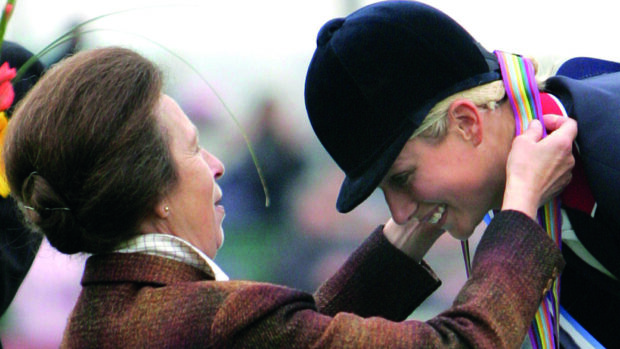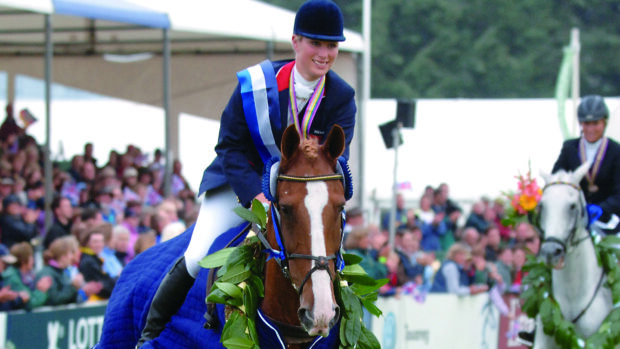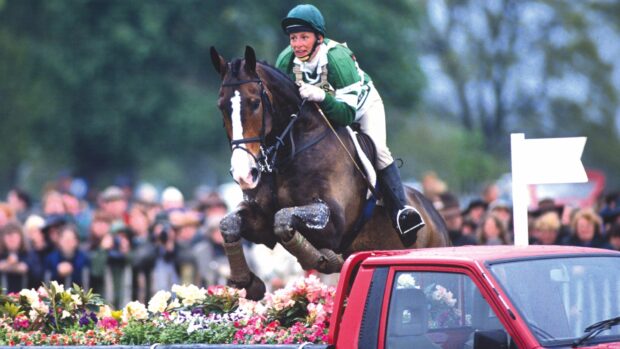Zara Phillips’ pregnancy has reignited the old controversy about riding while pregnant. Doctors and leading lady riders say they support her decision
The news that a second royal baby was on the way was swiftly followed by concern — and criticism — in some quarters.
Newspapers asked if she was putting her baby in danger, while H&H readers engaged in a furious debate on social media about Zara’s decision to continue competing.
Although she has since announced she will be taking a break from competition, Zara is expected to continue exercising her horses at home.
Few failed to notice that she had fallen in the CIC2* at Barbury Horse Trials just a couple of days before Buckingham Palace announced her pregnancy last week.
A good ambassador
Zara was missing from the British team for the European Championships, announced the same day. But should she be hanging up her boots altogether?
The risk of miscarriage is at its highest during the first three months of pregnancy and Zara is just past that stage.
But a leading obstetrician has told H&H that the risk of miscarriage through a fall is far less than most people think.
“I am not aware of anyone losing a baby through riding and I have looked after several women who have competed at three-day events,” said Roger Marwood, who helped deliver Zara 32 years ago.
Powerful precedents
In 1996, Zara’s Olympic teammate Mary King was given similar advice by the team doctor ahead of the Europeans in Pratoni, Italy.
Mary was 5 1/2 months pregnant with Emily. She did not tell the selectors or other riders, so as not to “burden” them, and only revealed she was pregnant after team gold and individual bronze were in the bag.
This resulted in some negative press. One journalist wrote: “I can’t make up my mind if she was very brave or very stupid.”
Neither, says Mary, who stands by her decision.
“I think you follow your head,” she told H&H. “I was keen to carry on riding; I felt it was my body and my baby.
“In King William I had the safest horse. I didn’t ride young, naughty horses who might be spooky or leave a leg.”
A very personal choice
The British Eventing (BE) rulebook does not mention pregnancy. The FEI prohibits in-foal mares competing after their fourth month, but that rule is not extended to the riders.
Another of Zara’s Greenwich teammates, Tina Cook, went round Burghley and Blenheim when pregnant with Isabelle, now eight, and Harry, six. She stopped with both pregnancies around the 41/2-month mark, largely because the eventing season was coming to an end.
“It is a very personal thing,” said Tina. “It’s completely up to the individual as to how they feel and how comfortable they are.”
Dressage competitor Steph Croxford rode throughout both her pregnancies.
“I said I would stop when my bump reached the pommel, but it never did,” she recalled.
“I would only ride horses that I knew. [Top string] Mr President sniffed my bump as if he knew something was in there — he just looked after me.”
Listen to your body
NHS guidance says that, due to the risk of falling, women should only ride during pregnancy if they are “a professional or an expert”.
But consultant obstetrician Mr Marwood disagrees. If your pregnancy is uncomplicated and you know the horse, it is fine to carry on as normal, he says. The key is to listen to your body.
“Some women will feel sick and dizzy and won’t want to get on the horse. Others will say, ‘I’m only pregnant, what’s the big deal?’” he added.
H&H reader Abbie Holmes fell into the former category.
“By the time I was six weeks gone, I was in a constant state of nausea and dizziness, so had to stop. It was a shame, as I’d had every intention of carrying on,” she told H&H.
For many women, riding becomes too uncomfortable after 28 weeks, due to the position of the foetus. But others, like Mary King, are able to ride right up until the birth.
Zara, says Tina Cook, “is so sensible, she will know exactly when it’s the right time to stop”.



